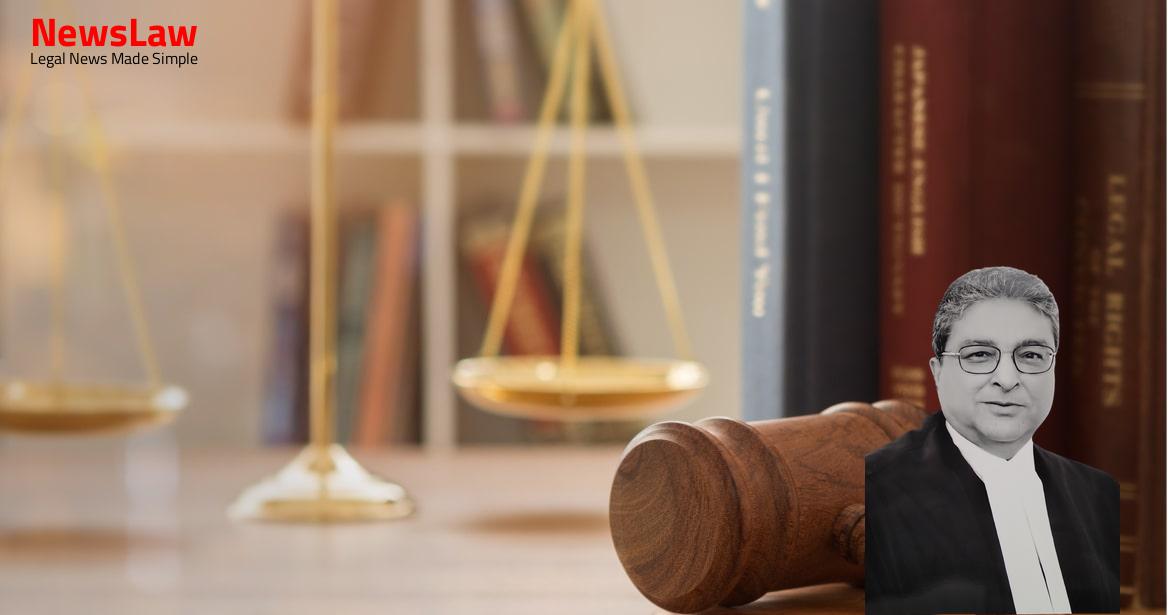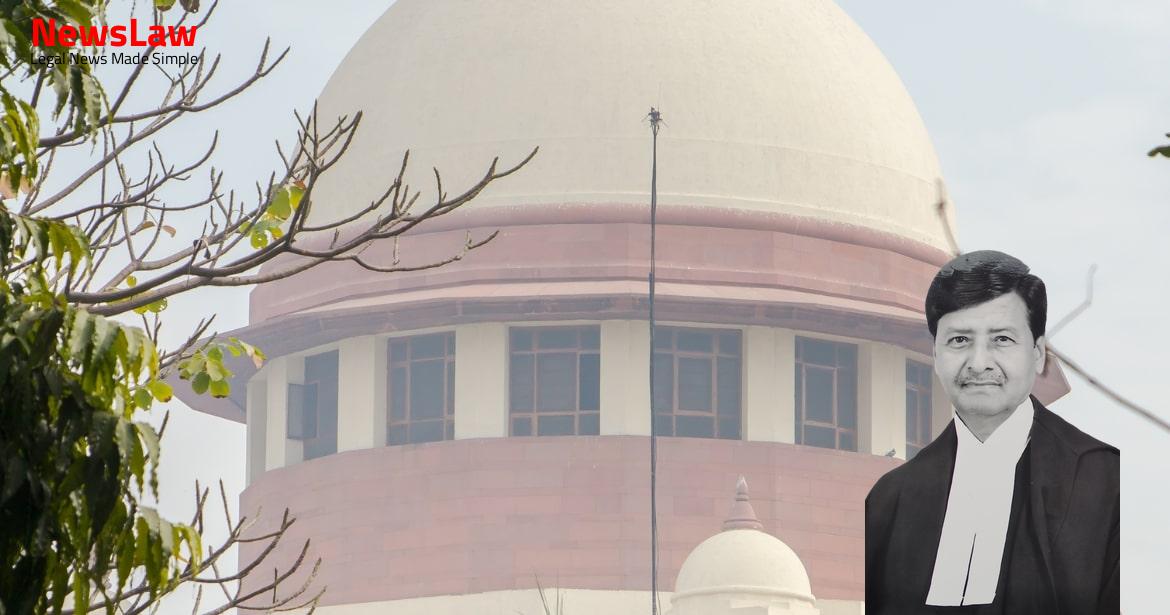In a landmark judgment by the Supreme Court of India, the case centered around the mandatory issuance of notice under Section 143(2) for tax assessments. The decision has significant implications for tax assessment procedures. Stay informed about this crucial ruling for taxpayers.
Facts
- The Assessing Officer disallowed the deduction claimed by the assessee under Section 80IA of the Income Tax Act, 1961.
- The CIT(A) allowed the assessee’s appeal and directed the Assessing Officer to allow the deduction.
- The High Court upheld the decision of the CIT(A) and dismissed the Revenue’s appeal.
- The Review Petition filed by the Revenue against the High Court’s decision was also dismissed.
- Search and seizure operation conducted under Section 132 of the Income Tax Act at the assessee’s residential premises on 11.03.2010.
- Assessee filed return of income on 24.08.2011, declaring a total income of Rs.9,35,130/-.
- Additions made to the income included Rs.45,00,000/- for unexplained hundies and Rs.29,53,631/- for unexplained cash receipts.
- Importance of issuing notice under Section 143(2) for regular assessment highlighted as a statutory requirement.
- Citing the case of ‘ACIT v. Hotel Blue Moon’ regarding the necessity of notice under Section 143(2) even in block assessments.
- Further additions of Rs.9,09,110/- for unexplained cash under Section 69, and Rs.15,09,672/- for unexplained jewellery.
- Cross objection filed on the jurisdiction issue of non-issuance of notice under Section 143(2) of the Act.
- Tribunal’s decision to quash entire reassessment proceedings due to lack of jurisdiction by the Assessment Officer without the required notice.
Issue
- The Appellate Tribunal affirmed the decision of CIT (A) stating that non-issue of notice under Section 143(2) is a procedural irregularity and can be cured.
- In the appeal before the Gauhati High Court, the two questions of law raised were related to the mandatory issuance of notice under Section 143(3) within the prescribed time limit for assessment.
- The Appellant relied on Section 292BB of the Act to argue that participation in proceedings by the Respondent cured any defects in notice issuance.
- The first question of law raised for consideration was whether notice under Section 143(2) is mandatory for assessment under Section 143(3) of the Act.
Also Read: CRPF Act: Validity of Rule 27 for Compulsory Retirement – Case of Head Constable vs. CRPF
Arguments
- Mr. Mahabir Singh, Senior Advocate, argued that Section 292BB would be a complete answer as the Respondent participated in the proceedings.
- Mr. Ankit Vijaywargia, Advocate for the Respondent, countered that no notice under Section 143(2) was issued, evidenced by orders on record and the Appellant’s memo of appeal.
Also Read: DAMEPL vs. DMRC: Curative Petition and Arbitral Award Restoration
Analysis
- The High Court held that Section 142 and sub-sections (2) and (3) of Section 143 are mandatory in cases where the assessing officer proceeds to make an inquiry in repudiation of the return filed under Section 158-BC(a).
- The High Court’s answer to the question of law was affirmative and in favor of the appellant against the Revenue.
- The main question for consideration is whether the service of notice under Section 143(2) within the prescribed period is a prerequisite for framing block assessments under Chapter XIV-B of the Income Tax Act, 1961.
- The impact of Section 292BB of the Act needs to be considered, especially regarding the validity of notice issuance under Section 143(2) as a prerequisite for proceedings.
- Section 292BB deems notice valid if the assessee participated in the proceedings, curing only the infirmities in the manner of service of notice.
- The expression ‘so far as may be, apply’ in Section 292BB does not restrict the application of Section 142 and sub-sections (2) and (3) of Section 143 strictly for block assessments.
- There is no reason to limit the scope and meaning of the expression ‘so far as may be, apply’ in Section 292BB as argued by the Revenue.
- Section 292BB of the Income Tax Act deems notice to be valid in certain circumstances.
- If the assessee has appeared or cooperated in any assessment or reassessment proceeding, the notice will be deemed to be duly served.
- The assessee cannot raise objections regarding the notice not being served, not being served on time, or being served in an improper manner if they have participated in the proceedings.
- Exceptions apply if the objection is raised before the completion of the assessment or reassessment.
- 1.1
- The facts on record indicate that no notice under Section 143(2) of the Act was ever issued by the Department.
Decision
- The Appeals have been dismissed.
- No costs have been awarded.
Case Title: COMMISSIONER OF INCOME TAX Vs. LAXMAN DAS KHANDELWAL
Case Number: C.A. No.-006261-006262 / 2019



